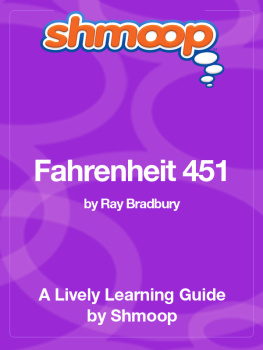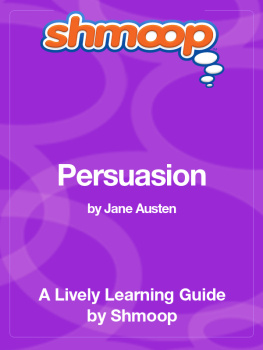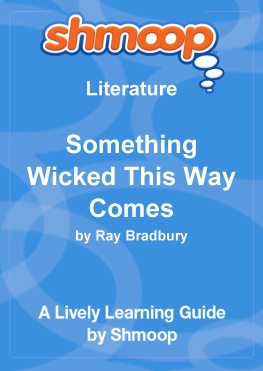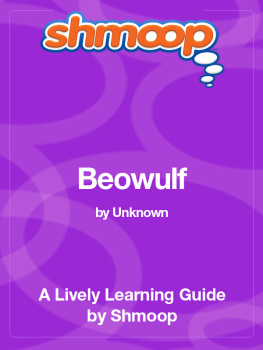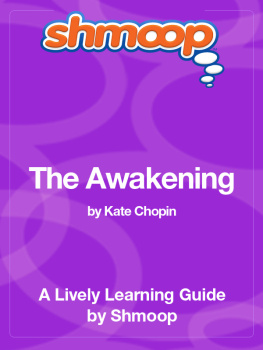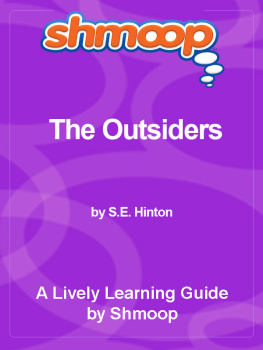
Table of Contents
In a Nutshell/Overview
Fahrenheit 451 tells the story of a futuristic world in which books are banned and burned, TV is everyone's drug of choice, and independent thinking is basically illegal. Ray Bradbury first wrote the tale as a short story called "Bright Phoenix" in 1947. The work progressed to adolescence as a novella called The Fireman, and finally became a full-grown novel in 1953. This was Bradbury's first Big Important Serious Work, though he was already famous for science fiction stories like his 1950 collection The Martian Chronicles. These stories put Bradbury on the map, but Fahrenheit got his name on the literary A list.
While the novel does touch on the dangers of censorship, Bradbury was adamant that this was not his focus. The novel is about the dangers of television, he said, and his fears that such mindless entertainment would replace recreational free thinking. Remember that in the 1950s color TV was the hot new thing; it represented the burgeoning empire of leisure. Add into the mix Cold War fears of "suspect" individuals and a need for straight-laced conformity, and you've got an environment ripe for Fahrenheit-style fears. Critics recognized the relevance of Bradbury's work then, and still do today.
Why Should I Care?
To the shock of many, Ray Bradbury has argued till the cows come home that Fahrenheit 451 is NOT about government censorship. In his mind, the novel is about the potential for TV to replace books, causing us to forget how to think for ourselves. Back in 1951 (two years before Fahrenheit was published), Bradbury wrote in a letter to fellow science fiction writer Richard Matheson:
"Radio has contributed to our 'growing lack of attention.' [...] This sort of hopscotching existence makes it almost impossible for people, myself included, to sit down and get into a novel again. We have become a short story reading people, or, worse than that, a QUICK reading people." (source)
Notice that he made this comment over fifty years ago. Consider what has changed since 1951. Bradbury seems to fear most of all the idea of the speed that technology like the radio and TV offers (making us a "QUICK reading people"). We wonder what Bradbury thinks of our Facebooked, MySpaced, Twittered, iPaded world today. One could say his fears have come true: we read at lightening-fast speed.
A huge part of a debate that is swirling all across the world about reading. You love literature, right? And you are feeding your interest through the Internet right now. You have a valuable perspective. The New York Times ran a story in July of 2008 about this very thing:
Clearly, reading in print and on the Internet are different. On paper, text has a predetermined beginning, middle and end, where readers focus for a sustained period on one author's vision. On the Internet, readers skate through cyberspace at will and, in effect, compose their own beginnings, middles and ends. (source)
New York Times writer Motoko Rich asks us here to consider the Internet's benefit to our brain, saying that it always us to create our "own beginnings, middles and ends." Are we, maybe, becoming more creative readers in addition to being "a QUICK reading people"? Is the book dead? Should we care if it is?
Get in on this debate - it's all about you! And we bet you a million bucks it's only just getting started. Who knows what new technology lies in wait for us?
Whats Up With the Title?
The 1991 Ballentine edition of this book made the meaning of the title pretty obvious with an addendum to the title: "Fahrenheit 451...the temperature at which books burn." This is followed shortly by: "The novel of firemen who are paid to set books ablaze." That pretty much covers it.
Whats Up With the Ending?
Cycles come up a lot in
Fahrenheit 451 - cycles of construction and destruction. Until he breaks free from his life as a fireman, all Montag knows is the latter. His job, his world, his entire life is about violence, death, elimination. Fire is a great example; it's used only to destroy books, people, and houses.
So it's a big deal when, towards the end of the novel, Guy finds a fire that is doing something positive. It's a warming fire, he realizes with awe. It's giving life, not taking it away. Montag has stumbled onto a big idea here - the constructive/destructive duality - but it's Granger who fleshes it out in the last few pages. Like all of life, he explains, mankind's presence on this planet is cyclical. We'll do this all repeatedly, he says - go through another Dark Age and have to rebuild and flourish all over again. When the city is bombed to the ground, it is with hope that Montag reaches towards it, finally aware of this big cycle and finally accepting it.
Which brings us to the final paragraph of the novel: the tree of life. Guy has been trying for at least fifty pages to remember some passage of the Bible, but it's not until his world is destroyed that the words come back to him. Makes sense, right? Something is destroyed, but something is created at the same time. More cycles, more duality. It's appropriate that the passage in question is about the tree of
life. As Guy remembers from the text, "To everything there is a season. A time to break down, and a time to build up." And we see both in the final pages of the novel.
Writing Style
Pulp Fiction-y
As critic after critic has pointed out, the prose of
Fahrenheit 451 is less than literary fiction: "Her face was slender and
milk-white, and it was a kind of
gentle hunger that touched over everything with a
tireless curiosity. It was a look of almost
pale surprise; the
dark eyes [our italics]" were probably full of several more
noun-adjective pairs. While this novel isn't praised for its sentence construction, it's famous today for its story, its message, its important questions and incredibly relevant concerns.
Tone
Dramatic
It's probably remants from his hardcore science fiction days, but Bradbury shows a clear flair for intensity here. Characters are extreme rather than realistic (Clarisse is the kooky yet wise outsider, Beatty the secretly intellectual, moustache-donning-villain, Mildred the vacant wife, Faber the reluctantly rebellious ex-professor, etc.). Events are apocalyptic (big fires, lots of bombs), and confrontations exist only on the grandest of scales (cars swerving to hit pedestrians, the occasional flame-thrower murder).
Narrator Point of View
Third Person (Limited Omniscient)
While the narrative is third person, it's limited to Guy Montag. We spend a good amount of time in his brain hearing his thoughts, learning who he is, and understanding his many, many personal crises. This keeps us on his side and allows us insights into the world of
Fahrenheit 451 we would otherwise have been denied.
Symbols, Imagery, Allegory
Fire, Heat, Light
As you might expect from a novel about burning books, there's a whole lot of fire in
Fahrenheit 451. We're not just talking about the burning houses, either. When people are angry, they're burning with rage inside. When Montag senses Clarisse's presence, it's because he feels body heat. When Granger and Co. pick themselves up after the bombing, we get the image of a phoenix rising up from the ashes. This imagery is all over the place.
Fire seems to mean a lot of different things at different moments in

